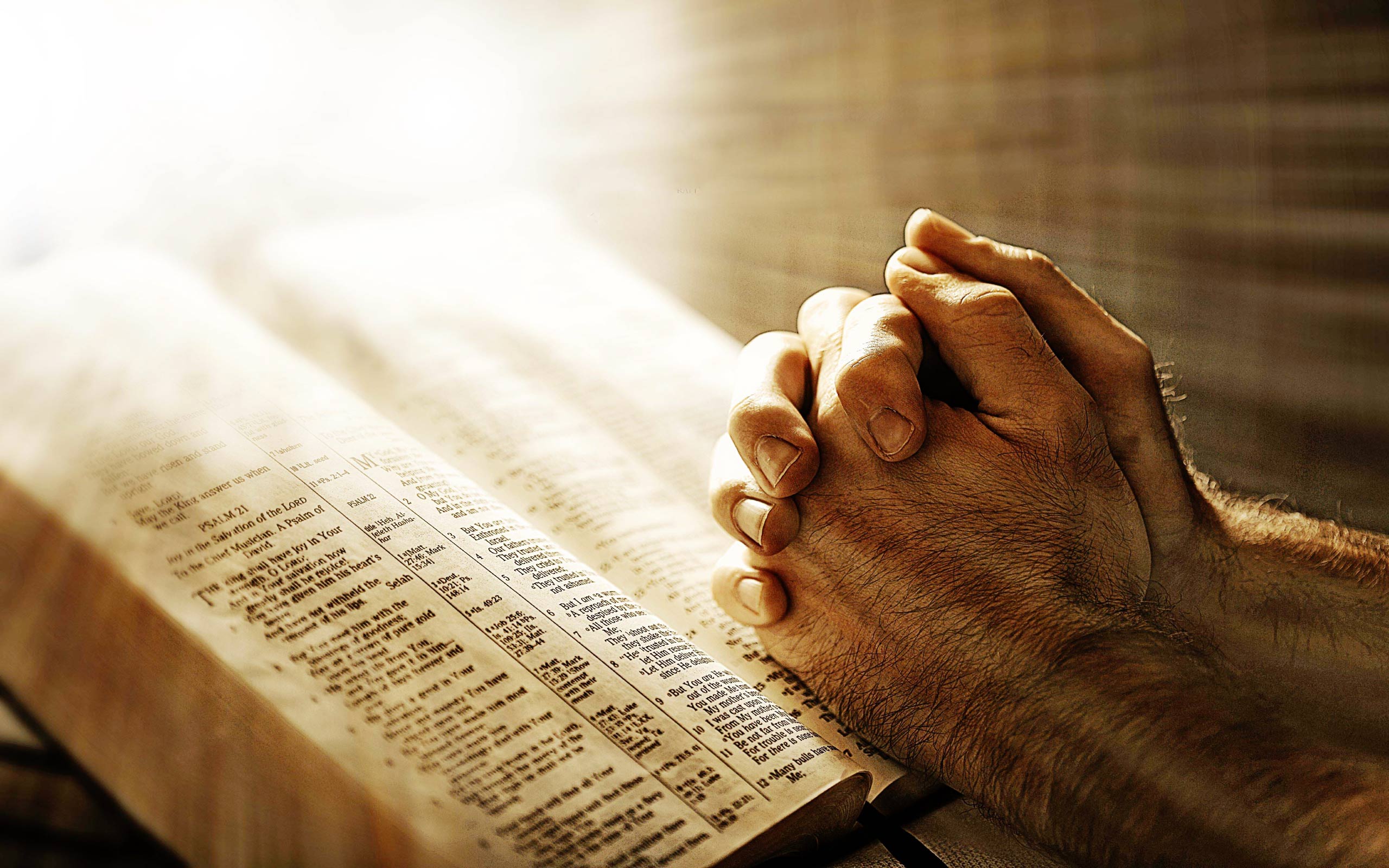 By Dr. Judith R. Coats
By Dr. Judith R. Coats
Why pray scripture? The point of this article is to deepen our prayer lives in order to build our confidence in God and to unite our hearts with His heart—to know Him and to enjoy Him. The intent is not to put a guilt trip on anyone–we all should pray more fervently. That is a given. However, we need to add this dimension to our prayers if we have not added scripture to our prayers already.
What are the common types of prayers that we could offer?
The 9-1-1 prayers: “God, I need a job.” “Repair our truck, please.” “Give us a good day.”
The “me-focused” prayers: What James calls “consuming it upon our own lusts.” Do this for me, God, or else!
The dutiful prayers: Run through a list, Amen. “Duty complete for today.” Oooops. I’m not sure I communed with anyone.
The rollercoaster prayers: Pleased with God on the mountains and angry with Him in the valleys–demonstrates a lack of knowledge of God.
The grateful, constant, communing prayers: Out of a grateful heart, I know God and enjoy Him. How do I know Him? I have stored up His Word in my heart.
~~~
I have prayed all of these kinds of prayers at one time or another. But as we mature in our faith, and as we know God deeply and enjoy Him fully, we should practice prayer that speaks to and from the heart of God.
This article is based on John 15:7: “But if you remain in me and my words remain in you, you may ask for anything you want, and it will be granted!” This verse does not give us unfettered license. The point is that the table of my life will be emptied of my desires. Since I am abiding in Him and His words are abiding in my heart and in my mouth, what I ask will be cradled perfectly in the will of the Father. I will ask the Father’s will for me. How refreshing and how reassuring!
Praying scripture in the morning–in our waking moments, before we blow it, here are some scriptures to pray before we begin our day. We desire to do His will for the day:
Psalm 19:14 (NLT) “May the words of my mouth and the meditation of my heart be pleasing to you, O Lord, my rock and my redeemer.”
Psalm 139:23 and 24 (NLT) “Search me, O God, and know my heart; test me and know my anxious thoughts. Point out anything in me that offends you, and lead me along the path of everlasting life.”
Praying scripture for the unsaved–Journal several scriptures that speak to the condemnation of the unsaved. Then weave those verses into your prayers for loved ones who are not in Christ:
“Dear God, your wrath abides on my loved one. You have said that you are not willing that any should perish. You have also said that you are longsuffering. No man or woman seeks after you. We are all gone astray. Please quicken the heart of my loved one to bring him/her to a point of true repentance and salvation.”
Praying scripture for intimacy with God–“Talk to God. Do you have anything worthwhile to say to God? At the very least, you can take time to talk to God about Himself. Especially for those of us who have grown up in Christianity, there is a need to appreciate God for who he is and what he has done. How sad is it that the average Christian and even average pastor rarely spend much more than 5-10 minutes in prayer daily. Apathy is our curse. We have grown accustomed to what we know about God. It does not move us deeply. We must spend time daily in prayer or song with our hearts engaged in deep gratitude and worship of God’s greatness and his goodness. This helps deepen our relationship with God. As often as possible we need to review what he did on the cross and do this in a way that moves our affections in gratefulness for his sacrifice and suffering. The normal twenty-first century prayer life is a series of brief “Hi God!” type of prayers: thanks for the food, help me with the quiz, please help my mom’s sister who is in trouble, take care of the missionaries and bless them, be with somebody somewhere today that needs something. . . .We talk to God in the same way we would talk with folks about the weather. Necessary but not deep, only as it concerns or changes my plans is it important. Let’s change this pattern of hollow Christianity. Let’s pray for intimacy with our God” (Dr. Dave Coats, Soul Purity).
Psalm 139:1-18 is an excellent place to start: “O, LORD, you have searched me and known me.”
Praying scripture for those that are ill–Pray for all of God’s purposes in this time of trial because of illness, especially that God would be glorified and that the sick person would be conformed to the image of God’s son.
John 11:4—“This sickness is not unto death, but for the glory of God, that the Son of God might be glorified thereby.”
Romans 8:29–“For God knew his people in advance, and he chose them to become like his Son.”
Praying scripture when we have sinned–Psalm 51 is a good place to start. “God, have mercy on me, O God, because of your unfailing love. Because of your great compassion, blot out the stain of my sins. Wash me clean from my guilt. Purify me from my sin. For I recognize my rebellion; it haunts me day and night. Against you, and you alone, have I sinned; I have done what is evil in your sight.”
Praying scripture for saved loved ones and friends—A good place to start would be Paul’s prayers for believers in the epistles. “So we have not stopped praying for you since we first heard about you. We ask God to give you complete knowledge of his will and to give you spiritual wisdom and understanding. Then the way you live will always honor and please the Lord, and your lives will produce every kind of good fruit. All the while, you will grow as you learn to know God better and better. We also pray that you will be strengthened with all his glorious power so you will have all the endurance and patience you need. May you be filled with joy, always thanking the Father” (Colossians 1:9-12a).
Praying scripture for enemies–“God, help me to love my enemies, to bless them and not to curse them, to do good to them that hate me, and to pray for them which despitefully use me and persecute me; that I will be a child of you, my Father, in heaven” (From Matthew 5:44, 45a).
Praying scripture for government leaders, teachers, and pastors–“Dear God, please help Pastor to serve with a clear conscience and a life of honesty as he sets the vision for our church body” (Hebrews 13:18). Pray for the salvation of our government leaders. Pray for the integrity of saved government leaders. Our teachers have a great accountability (James 3:1) before God. James is speaking of teachers in the church, but I think the accountability is broadly applicable for teachers.
Praying scripture as we pillow our heads–“God, you resist the proud, but you give grace to the humble” (James 4:6). “Without you, I could have done nothing today.”
“For true and earnest prayer cannot be offered without faith; for when the taste of God’s grace is lost, it cannot be that we can pray from the heart; and it is through the promises alone that we can have a taste of God’s paternal goodness [emphasis mine].” John Calvin, Commentary on Jeremiah, Lamentations


 By Dr. Judith Coats
By Dr. Judith Coats By Judith Coats
By Judith Coats Have you heard of the book series Eat This, Not That? Well, the author contrasts food choices that would seem to be healthy, but are not, with food choices that are better for you. He advises to eat frosted mini-wheats rather than granola because granola has lots of sugar. Well, I would like to create my own spin on this title. The heart of this post is an encouragement to believers to “say this to yourself, not that.” Preach the Gospel to yourself instead of living a life of bitterness, fear, revenge, doubt, regret, or in any other number of realms that equate to spiritual poverty. Do we really understand what it means to preach the Gospel to ourselves daily, why exercising this principle is so important, and why the Gospel does not stop meeting our needs after the moment that we identify with Christ and accept Him as our Savior?
Have you heard of the book series Eat This, Not That? Well, the author contrasts food choices that would seem to be healthy, but are not, with food choices that are better for you. He advises to eat frosted mini-wheats rather than granola because granola has lots of sugar. Well, I would like to create my own spin on this title. The heart of this post is an encouragement to believers to “say this to yourself, not that.” Preach the Gospel to yourself instead of living a life of bitterness, fear, revenge, doubt, regret, or in any other number of realms that equate to spiritual poverty. Do we really understand what it means to preach the Gospel to ourselves daily, why exercising this principle is so important, and why the Gospel does not stop meeting our needs after the moment that we identify with Christ and accept Him as our Savior? The other day, we were talking to our daughter Julie and her husband Rob about the times in our lives when creation astounds us: when we see the hand of God in a powerful storm or when we witness the roaring waters of a cascading falls or when we sense the carefulness of a hummingbird, feeding at nectar. These moments sometimes do not click as a gift from our Creator—an opportunity to ponder the splendor of what He has made for us to enjoy.
The other day, we were talking to our daughter Julie and her husband Rob about the times in our lives when creation astounds us: when we see the hand of God in a powerful storm or when we witness the roaring waters of a cascading falls or when we sense the carefulness of a hummingbird, feeding at nectar. These moments sometimes do not click as a gift from our Creator—an opportunity to ponder the splendor of what He has made for us to enjoy. “Are we blind to those around us?” That question has become some sort of moot, powerless, paradigm to “think of others.” But, seriously, do we manage our daily lives in such a way that we have actually come to the point where “going the second mile” is not appealing, not possible, or not in our calendar? Should we consciously think instead in terms of how we may have an impact on our community? Our neighbors? Those around us at our jobs? Literally everyone that God brings across our path?
“Are we blind to those around us?” That question has become some sort of moot, powerless, paradigm to “think of others.” But, seriously, do we manage our daily lives in such a way that we have actually come to the point where “going the second mile” is not appealing, not possible, or not in our calendar? Should we consciously think instead in terms of how we may have an impact on our community? Our neighbors? Those around us at our jobs? Literally everyone that God brings across our path?